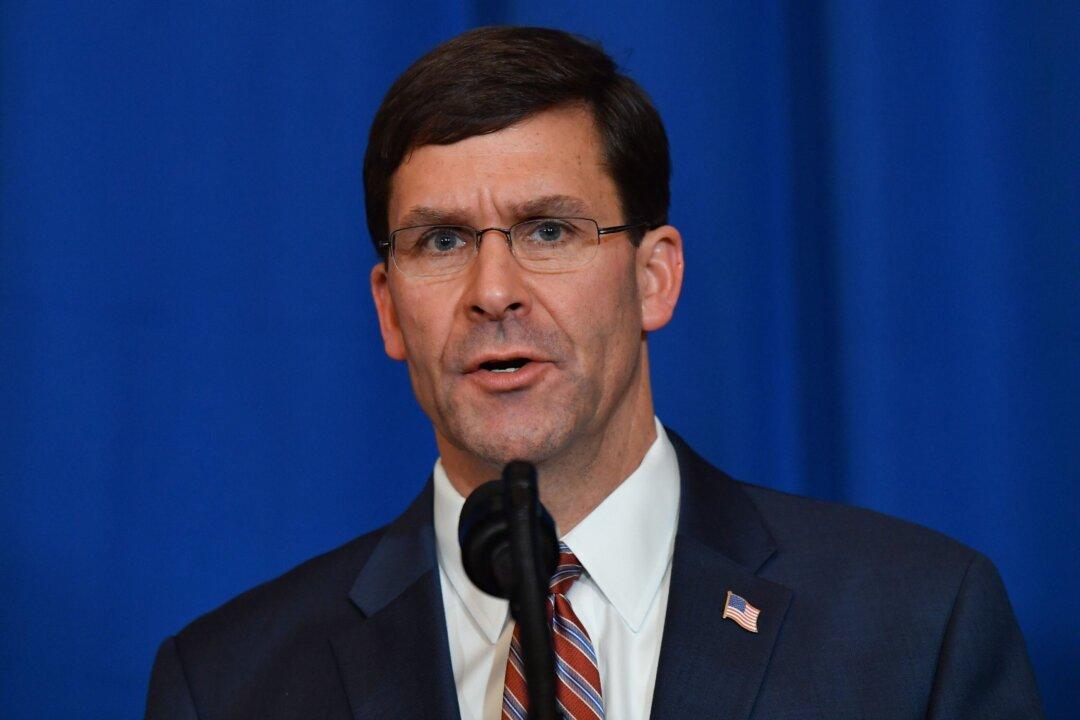Secretary of Defense Mark Esper has confirmed that “defensive strikes,” including on the headquarters of the Iran-backed Hezbollah Brigades terrorist group, also known as the Kata'ib Hezbollah, have been “successful.”
The Dec. 29 strikes on Kata'ib Hezbollah targets in Iraq and Syria were approved after the death of a U.S. defense civilian contractor who was killed in a rocket attack on a northern Iraqi military base.





